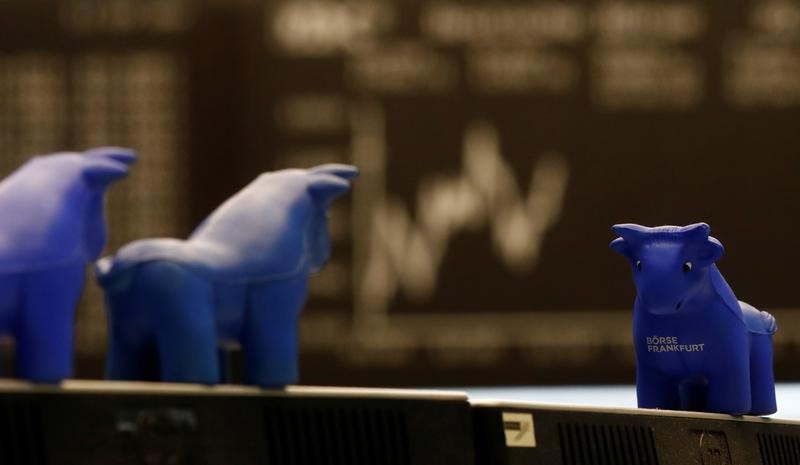By Peter Nurse
Investing.com -- European stock markets traded higher Monday, boosted by strong German industrial orders as well as the disappointing U.S. jobs report pointing to a delay in Federal Reserve monetary policy tightening.
At 3:35 AM ET (0735 GMT), the DAX in Germany traded 0.6% higher, the CAC 40 in France rose 0.6% and the U.K.’s FTSE 100 climbed 0.5%.
Helping the tone at the start of the week was the news that orders for German factory goods unexpectedly surged in July, climbing by 3.4% on the month, hitting a post-reunification high.
The release had been expected to fall 1.0% on the month, and while it was foreign orders that surged with domestic orders falling, it still pointed to a solid start to the second half in Europe's largest economy and major growth driver.
Investors are also still digesting Friday’s U.S. payrolls report, which showed a much smaller increase in jobs than expected, likely delaying the timing of the tapering of the Federal Reserve’s bond-buying program as the U.S. central bank gauges the impact on the economy of the growth of Covid-19 cases.
This also puts the focus on the European Central Bank, as the region’s central bank is expected to debate whether to scale back its stimulus at Thursday’s meeting.
Inflation in the euro area has surged to a 10-year high of 3%, prompting calls from the more hawkish members of the governing council for the bank to begin slowing its huge asset buying program.
Corporate news is thin on the ground, particularly with the U.S. on holiday, but Spie (PA:SPIE) stock fell 3.6% after the French engineering group confirmed it has bid for Equans, the newly created services unit of French energy group Engie (PA:ENGIE).
Crude prices traded sharply lower Monday after Saudi Arabia, the world’s top exporter, cut its prices for Asian buyers over the weekend, suggesting an uncertain demand outlook.
State oil giant Saudi Aramco (SE:2222) said on Sunday that it will cut October prices for all crude grades sold to Asia, the region that consumes the bulk of its oil, by at least $1 a barrel, significantly more than had been expected.
These concerns about demand, with Covid-19 cases still on the rise, came in the wake of the Organization of Petroleum Exporting Countries and their allies, a group known as OPEC+, confirming its intention last week to add another 400,000 barrels per day of supply in October.
By 3:35 AM ET, U.S. crude futures traded 1.2% lower at $68.47 a barrel, while the Brent contract fell 1.2% to $71.75.
Additionally, gold futures fell 0.3% to $1,827.75/oz, while EUR/USD traded 0.2% lower at 1.1862.
